




















 Attorney Jeff Tillotson
Attorney Paul Wingo
Attorney Jeff Tillotson
Attorney Paul Wingo
 Attorney JoDee Neil
Attorney JoDee Neil
 Attorney Arielle Comer Attorney Krisi Kastl HeatherHoffman Emma Hoffman Preston Saunders
Attorney Arielle Comer Attorney Krisi Kastl HeatherHoffman Emma Hoffman Preston Saunders
 Bishop Harold Edwards Jacqueline Vanughn
Bishop Harold Edwards Jacqueline Vanughn
 Judge Monique Bracy
Judge Monique Bracy
 Attorney Dimitri Dube & Soyini Dube
Attorney Dimitri Dube & Soyini Dube
 Congresswoman Jasmine Crockett
Congresswoman Jasmine Crockett
 Judge Maria Aceves
Judge Maria Aceves
 Attorney Chad Ruback
Attorney Chad Ruback
 Attorney Alex Risinger
Attorney Alex Risinger
 Nancy Zamundo Host of Latino Vista
Nancy Zamundo Host of Latino Vista
 Preston Saunders Emma Hoffman
Heather Hoffman
Preston Saunders Emma Hoffman
Heather Hoffman

 Toby Purdy Zane Purdy
Juddge Monica Purdy
Toby Purdy Zane Purdy
Juddge Monica Purdy
 Judge Aiesha Redmond
Judge Aiesha Redmond
 Judge Dominique Collins
Attorney Theresa Bui Creevy
Judge Dominique Collins
Attorney Theresa Bui Creevy
 Rosanna Green CFO Dallas Lawyers Magazine
Rosanna Green CFO Dallas Lawyers Magazine
 Judge Remeko Tranisha Edwards Attorney Krisi Kastl
Judge Remeko Tranisha Edwards Attorney Krisi Kastl
 David Granado & Judge Sasha Monik Moreno
David Granado & Judge Sasha Monik Moreno
 Pamela Sing Prater
Pamela Sing Prater
 Stephanie Russakov
Stephanie Russakov
 Bishop Nathiel D. D. Wells
Bishop Nathiel D. D. Wells
 Judge Monica Purdy
Judge Monica Purdy

 Johnny Brown & Capri Truvillion
Johnny Brown & Capri Truvillion
 Justice Bill Pedersen Attorney Krisi Kastl
Attotney Kandace Walter
Justice Bill Pedersen Attorney Krisi Kastl
Attotney Kandace Walter
 Yoann Salazar
Yoann Salazar
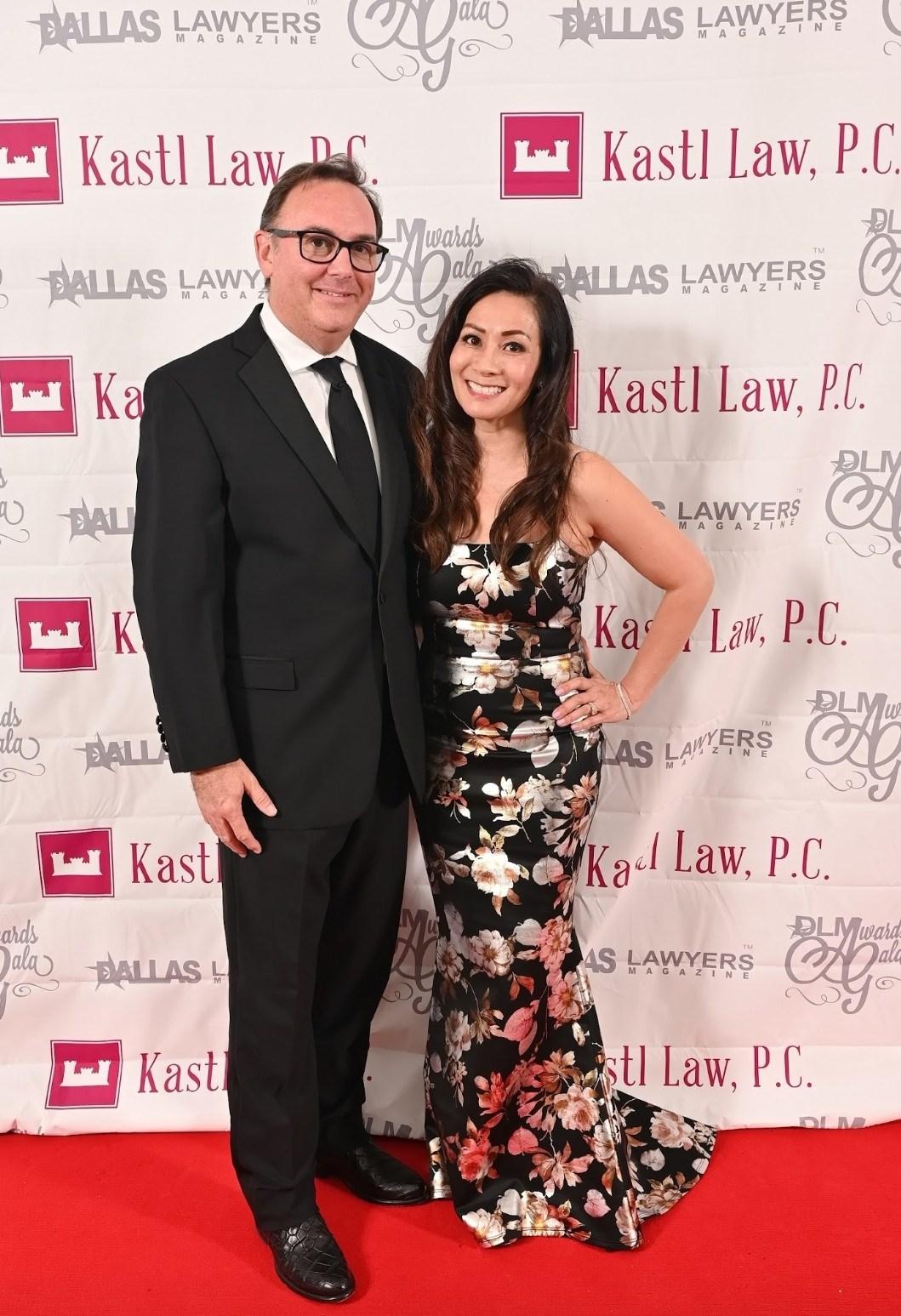 Scott Creevy
Attorney Theresa Bui Creevy
Scott Creevy
Attorney Theresa Bui Creevy
 Attorney Jeff Tillotson
Attorney Jeff Tillotson
 Attorney JoDee Neil
Attorney JoDee Neil
 James Marvell
James Marvell
 Joseph Whitfield Judge Katina Whitfield Jonathon Whitfield
Joseph Whitfield Judge Katina Whitfield Jonathon Whitfield
 Al Green Judge Monica Purdy
Jacqueline Vaughn
Al Green Judge Monica Purdy
Jacqueline Vaughn
 Judge Dominque Collins
Judge Dominque Collins
 Attorney Ashlei Dior Judge Audrey Morehead
Attorney Ashlei Dior Judge Audrey Morehead
 Judge Tammy Kemp Shawn Rabb
Richard Miles
Judge Tammy Kemp Shawn Rabb
Richard Miles
 DLM Judge of The Year Magazine Cover Judge Martin Hoffman
DLM Judge of The Year Magazine Cover Judge Martin Hoffman
 DLM Judge of The Year (Judge Martin Hoffman)
DLM Judge of The Year (Judge Martin Hoffman)
 Attorney Jeff Tillotson Judge Martin Hoffman
Attorney Jeff Tillotson Judge Martin Hoffman
 Judge Aiesha Redmond DLM Justice Award 2022 Presented By Jeff Tillotson
Judge Aiesha Redmond DLM Justice Award 2022 Presented By Jeff Tillotson
 Judge Aiesha Redmond DLM Justice Award 2022
Judge Aiesha Redmond DLM Justice Award 2022
 Krisi Kastl DLM Award Presenter and Sponsor 2022
Krisi Kastl DLM Award Presenter and Sponsor 2022
 Andrea Hilburn President Delta Signa Theta Sorority,
Andrea Hilburn President Delta Signa Theta Sorority,
 Congresswoman Jasmine Crockett & Al Green DLM Publisher /CEO
Congresswoman Jasmine Crockett & Al Green DLM Publisher /CEO



 Judge Aiesha Redmond Al Green Judge Lisa Green
Judge Aiesha Redmond Al Green Judge Lisa Green
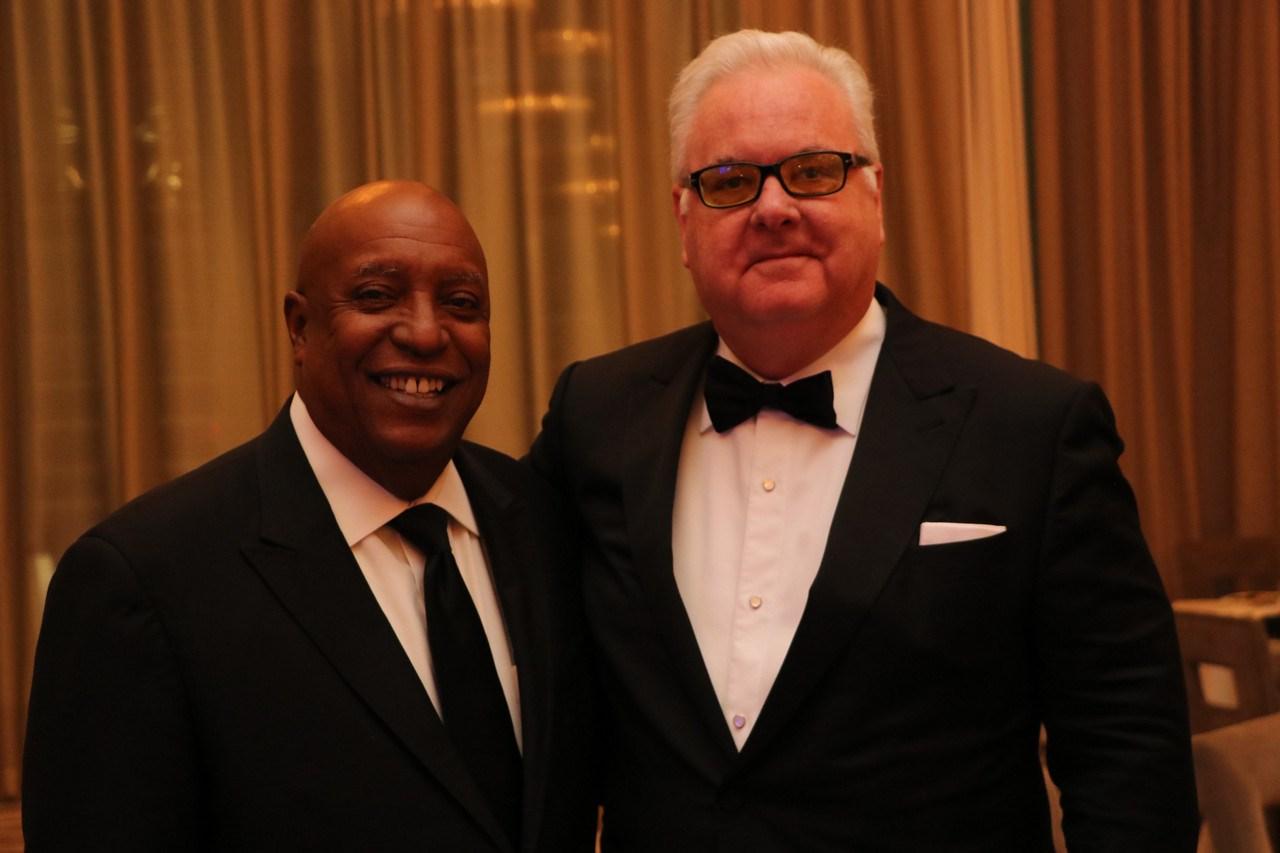 Shawn Rabb
Attorney Jeff Tillotson
Shawn Rabb
Attorney Jeff Tillotson
 Harvey Phelps Chekelah Phelps
Harvey Phelps Chekelah Phelps


 Diane Bristol Attorney Ashiel Dior
Diane Bristol Attorney Ashiel Dior


 Judge Lisa Green Accepting DLM Justice Award 2022
Judge Lisa Green Accepting DLM Justice Award 2022
 Judge Tammy Kemp Accepting DLM Justice Award 2022
Judge Tammy Kemp Accepting DLM Justice Award 2022
 J Judge Maria Aceves DLM Award Presenter 2022
J Judge Maria Aceves DLM Award Presenter 2022
 Attorney Ayesha Rafi Dubose Judge Maira Aceves Judge Martin Hoffman Attorney Alex Risinger Attorney Chad Ruback
Attorney Ayesha Rafi Dubose Judge Maira Aceves Judge Martin Hoffman Attorney Alex Risinger Attorney Chad Ruback
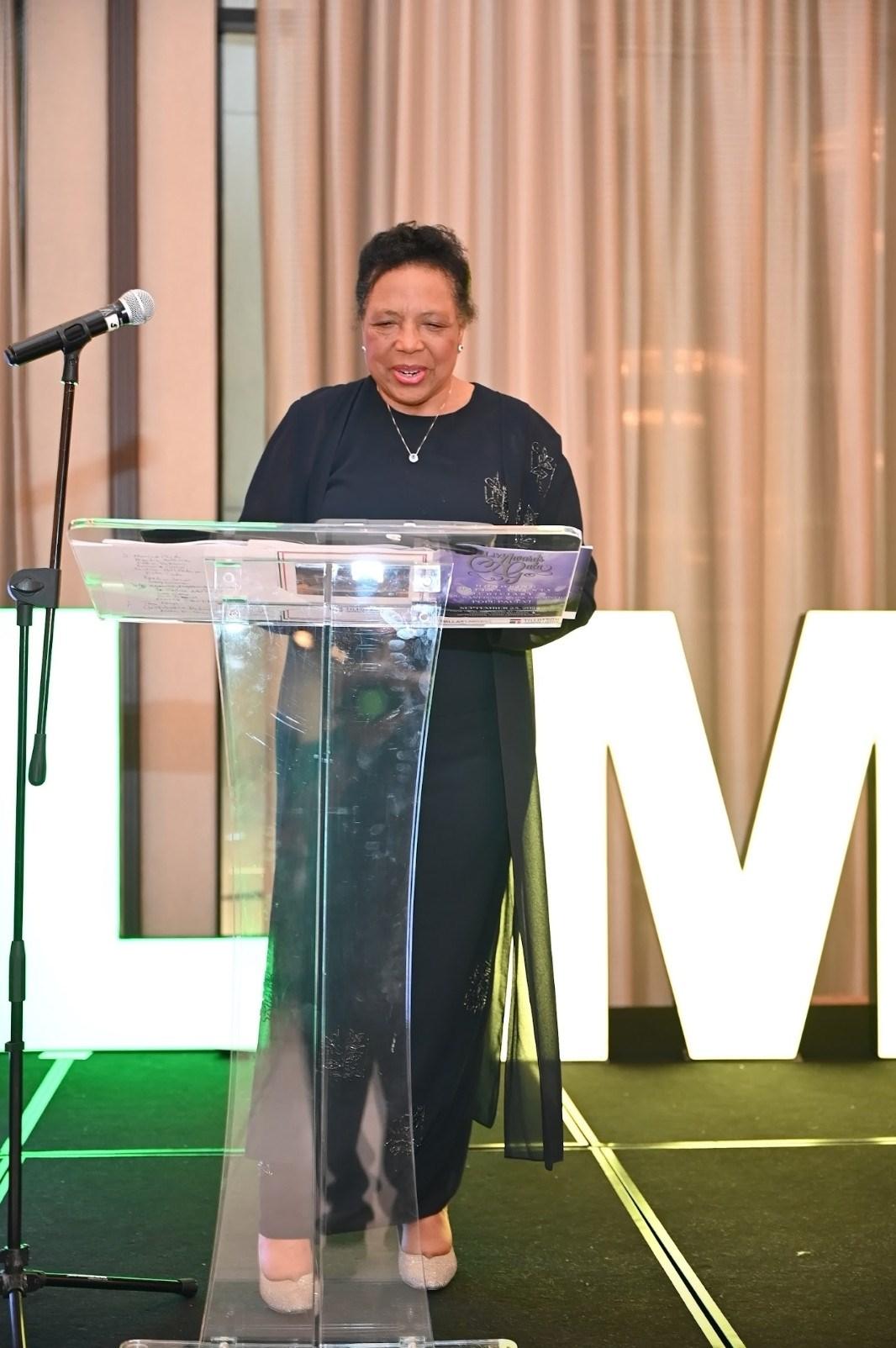 Presenting the (Ret) Chief Justice Carolyn Wright Sanders Awards for Standards & Ethics 2022 to Judge Monica Purdy
Presenting the (Ret) Chief Justice Carolyn Wright Sanders Awards for Standards & Ethics 2022 to Judge Monica Purdy
 Judge Monica Purdy accepting the (Ret) Chief Justice Carolyn Wright Sanders Awards for Standards & Ethics 2022
Judge Monica Purdy accepting the (Ret) Chief Justice Carolyn Wright Sanders Awards for Standards & Ethics 2022
 Judge Monica Purdy accepting the (Ret) Chief Justice Carolyn Wright Sanders Awards for Standards & Ethics 2022 Assisted by Ariel Green DLM Coordinator
Judge Monica Purdy accepting the (Ret) Chief Justice Carolyn Wright Sanders Awards for Standards & Ethics 2022 Assisted by Ariel Green DLM Coordinator
 Judge Monica Purdy accepting the (Ret) Chief Justice Carolyn Wright Sanders Awards for Standards & Ethics 2022
Judge Monica Purdy accepting the (Ret) Chief Justice Carolyn Wright Sanders Awards for Standards & Ethics 2022
 Judge Monica Purdy accepting the (Ret) Chief Justice Carolyn Wright Sanders Awards for Standards & Ethics 2022
Judge Monica Purdy accepting the (Ret) Chief Justice Carolyn Wright Sanders Awards for Standards & Ethics 2022
 Attorney Paul Wingo Accepting DLM TOP 100 Best Lawyers From Presenter Jacqueline Vaughn
Attorney Paul Wingo Accepting DLM TOP 100 Best Lawyers From Presenter Jacqueline Vaughn
 Attorney Paul Wingo Accepting DLM TOP 100 Best Lawyers From
Attorney Paul Wingo Accepting DLM TOP 100 Best Lawyers From
 Lachon Jacobs President of Alpha Kappa Alpha Sorority Incorporated, Alpha Xi Omega Chapter
Lachon Jacobs President of Alpha Kappa Alpha Sorority Incorporated, Alpha Xi Omega Chapter
 Attorney JoDee Neil DLM Awards Presenter
Attorney JoDee Neil DLM Awards Presenter
Looking back over your life, what would Judge Hoffman’s unique Foreclosure Mediation Program gives homeowners a voice in the foreclosure process. Part of the process is giving homeowners a chance to learn about how to save their homes. The program has resulted in dozens of Dallas County families saving their homes from bank foreclosure.


Judge Hoffman is a lifelong Democrat. He was President of the Texas Young Democrats and served as Ann Richards State Youth Coordinator.


Attorneys can easily demand thousands of dollars and charge $200 or $300 per hour to take your case. Some charge up to 40% off the top of any settlement or verdict you get. So if you are injured in an accident, your lawyer may get almost half of everythingyouareentitledto.
However, if you ask any lawyer, they may tell you that their costs are fair. In fact, many will lament that they are underpaid. Here's a look at some reasons lawyers charge what theydo:

Research and writing takes time. If you only receive a one-page document or a brief response to a legal question, you may wonder what you just paid for. However, the seemingly simple response that you get may be the result of hours of work researching every aspect of your legal issue. Lawyers use their expertise to explore every avenue and weigh every risk involved in a decision. As a result, the end product you see may not reflect all the behind-the-scenes considerations the attorney made in coming to a conclusion. Also, if all you wanted was a simple answer to your legal question, you were likely spared the expense of a more detailed answer (which would have required more time and would cost evenmoremoney).
Access to legal research tools. Mostlawyersaccesscases,opinions, andstatutesthroughtheuseofsome online legal research tool like Westlaw (which, like FindLaw, is owned by Thomson Reuters). These tools are much more expensive than you might imagine and lawyers set their rates in order to be able to cover these costs and more, and earn a living.
Staffing and overhead costs. Someone needs to pay the secretary, the receptionist, the paralegal, and the rent/utilities/other office expenses. Law firms only make money from the work attorneys do, so everyone else in the office, and the office itself, reliesonanattorneybillings. So how can you avoid these high hourly rates? You can try to take advantage of some lawyers' free consultations, but there's typically only so much you can discuss before your free time is up. Also, keep in mind that free consults are usually used by attorneys as a way to get clients in the door for the purpose of signing up new clients, so don't expect to walk away with a lawyerletter,ormuchmorethan information on what you can do next (which will usually involve hiring that lawyer, if they want yourcase).
If you're searching for a more affordable lawyer, often solo practitioners (lawyers thatpractice withoutlawyerpartners, and often with minimal staff) can offer the best, most competitive (lowest) hourly and contingency rates. This is due to the fact that solo attorneys tend to have the lowest overhead.
If you've already retained a lawyer, the best way to cut back on costs is to stay on top of things: Bring all necessary documents to your meetings and hearings, promptly reply to your lawyer's requests, and make a list of questions to ask all at once. Also, don't be afraid to ask your attorney what you can do to reduce the costs. Time is money, especially when it comes to lawyers, so make sureyou spend it wisely.
By Andrew LuIf you've ever hired a lawyer, you may have been staggered by the costs involved. Why do lawyers cost so much?BY DALLAS LAWYERS MAGAZINE

"I have been privileged to try cases across the table from many talented trial lawyers, but if I had to single one out it would be Jeff Tillotson. We tried a complex and tough case and I was amazed at what a naturally gifted trial lawyer he was throughout the trial. His instinct before a jury and his quiet confidence - no arrogance or condescension that might offend jurors - were truly impressive. On top of this, he was a pleasure to work with and a consummate professional throughout a relatively intense trial. I have since used a couple of things I saw him do in subsequent trials with success. No matter how many trials or appeals we might have, we can always learn from our colleagues." - Law 360

Few trial lawyers in the country have as much complex litigation experience as Jeff Tillotson. Even fewer have as much trial experience in complex multi-party cases. Over the past decade, Jeff has acted as lead lawyer in over a dozen major multi-party cases, brought in courts in nine different states, for clients such as: the nation’s largest consumer finance company; its third largest bank; its second largest credit card issuer; and forty of the nation’s leading industrial concerns. These cases involved all possible aspects of complex litigation involving multiple parties, competing venues, extensive discovery, complex strategy and intense media scrutiny. The cases were profiled everywhere from the Wall Street Journal to Nightline to CBS Evening News and People magazine.

Krisi Kastl founded Kastl Law, P.C. to help those with personal injury claims in Texas. For years, Kastl Law has been the lifeline that victimized parties needed to recover maximum compensation for their injuries. Making a difference in the lives of her clients has always been her main goal. Krisi has many years of courtroom experience as a Dallas trial attorney and has covered a wide variety of cases, including catastrophic motor vehicle accidents, motorcycle wrecks, truck wrecks, premises liability, wrongful death, and products liability. Ms. Kastl has earned the respect of her peers and insurance companies and the gratitude of the clients she represents. Krisi is a no-nonsense attorney who is proud to be the voice of the victims against big insurance companies that attempt to use intimidation to unfairly get out of accepting responsibility for their insured’s wrongdoing.

is a young, talented criminal defense attorney practicing in the Dallas, Texas area. Before returning to the DFW and earning his law degree, he attended the University of Texas at Austin where he majored in History with a focus on African-American Cultural Studies. Chris began his legal career as a prosecutor at the Dallas County District Attorney’s Office. After leavs Office, he opened The Knox Firm to pursue his passion of defending individuals who have been charged with criminal offenses or may be the subject of a criminal
As a criminal defense attorney, Chris quickly gained a reputation of ags interests while exhibiting the highest level of professionalism, integrity and honesty in his dealings with the prosecuting attorneys and the members of the judiciary. He takes pride in the personal & emotional investment he and his team make in every case they accept.

Charmaine Voorhees Becken is a Share holder in the Dallas office of Godwin Bowman PC, focusing her practice on commercial and business litigation matters. She represents both plaintiffs and defendants in business and commercial disputes involving banking, employment, and other business litigation issues. Charmaine has also worked extensively in the areas of real estate, family law, and estate planning/probate in addition to having first and second chair trial experience representing individuals and businesses. She received her Juris Doctor degree from Texas A&M University School of Law in 2014. During law school, Charmaine served as a judicial extern for the Hon. Judge Martin Hoffman of the 68th District Court, participated in mock trial, and worked as a law clerk for litigation firms. She received a dual undergraduate degree in English and Philosophy with a minor in Business from Texas Christian University.



Stefanie Major McGregor is a Shareholder in the Dallas office of Godwin Bowman PC, focusing her practice on commercial litigation matters. She represents clients in both the prosecution and defense of a wide range of cases before state and federal courts around the country. Stefanie's practice covers a broad range of areas, with an emphasis on complex litigation, environmental and oil and gas litigation, major family law disputes (custody, property division, etc.), property disputes, and disputes involving trusts and estates. Notably, she was an important member of the Firm's trial team in the successful defense of Halliburton in connection with all civil litigation and investigations concerning BP's Macondo well blowout in the Gulf of Mexico, the largest environmental lawsuit in the history of the United States. Stefanie clerked for the Louisiana Supreme Court for one year and later became a Senior Research Attorney. Reflecting the excellence of her practice, Stefanie has been honored six times with selection to Thomson Reuters' Texas Rising Stars, which recognizes the top young attorneys in the State of Texas. She received a J.D. from Loyola University New Orleans School of Law in 2002 and a B.S. in Political Science from Texas A&M University in 1999.

Attorney Russell Wilson, II, began his legal career in Dallas after graduating with honors from the University Of Oklahoma College Of Law. He formed his own practice, with a focus on both civil and criminal matters. His early professional goals were to meet the needs of the average member of the community and provide top-notch legal representation to an underserved clientele. While he began as a generalist, his success in criminal cases soon became apparent. Russell was most serious about his mission to help people. He knew that clients facing criminal matters could suffer dire consequences without savvy and knowledgeable representation. Investigative aspects of his legal representation intrigue to him. Often, infractions and procedural mistakes are made by the prosecution: without a thorough and aggressive defense, defendants can easily become another statistic.

George Milner, III developed a prolific repn as a trial lawyer at a very young age He began his career under District Attorney John Vance and proved his courtroom ability from the beginning. Milner tried his first jury trial the first day he was licensed to practice law. Milner faced the legendary Randy Taylor in that trial, which lasted more than a week. In the end, Milner won. He continued this hard hitting approach and had no fear of trying the hard cases.
In early 1994, Milner left the District Attorney’s Office to join his father, George Milner, Jr., and began defending those accused of the same offenses he’d prosecuted. Ironically, Milner was hired to represent some of the same people he’d proset take me long [in the first trial when you prosecuted me] to realize I needed you as my lawyer.” During his tenure as a prosecutor, Milner developed close friendships with many law enforcement agents. They liked his aggressive courtroom style. And, as has been the case, many officers themselves came under criminal accusation. A saying became well known in the law enforcement community, “If you’re in trouble, call Milner.” Now, over eight years later, Milner has represented approximately two dozen state and federal law enforcement officers. And, with one exception, every single case resulted in either acquittal, dismissal or a No-Bill by the Grand Jury.
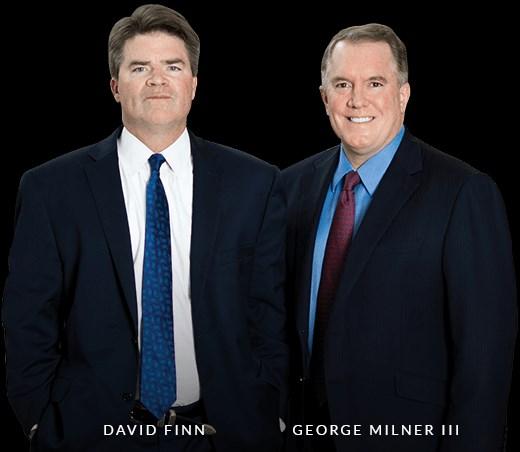

Maria “Marifer” Aceves is a civil litigation attorney focusing on personal injury, civil guardian ad litem work, and mediations. She has successfully litigated and resolved numerous cases for her cliPrior to starting her own firm, Ms. Aceves did defense work for several years at a prominent defense firm, worked at an excellent boutique catastrophic injury firm and interned for a well-known civil judge in Dallas County. Ms. Aceves’ results range from successful trial verdicts to a six figure settlement of a slip and fall case against a corporate Defendant in federal court.
Ms. Aceves’ areas of practice include traumatic brain injuries, motor vehicle accidents, trucking and 18-wheeler accidents, pedestrian accidents, premises liability, products liability, dog bite injuries, and wrongful death cases. Ms. Aceves also recently completed 40 Hours of Basic Mediation Training and received a Mediation Certificate from Manousso Mediations. Her mediation practice focuses on Spanish-speaking personal injury, premises liability, commercial, real estate, and employment cases. What sets Ms. Aceves’ firm apart is that she is truly dedicated to helping her clients. Her dedication to her clients has been recognized time and time again.

Sean Chalaki, is the founder of Chalaki Law, P.C.



I founded this firm on one simple principle; I love to help!
We know that you have many options when seeking representation for your personal injury case, but we believe that Chalaki Law, P.C. is the firm for you because of commitment to ensuring the best possible outcome for our clients.
Every case we sign up goes through an extensive investigation process in which we gather all the evidence necessary for trial. Ninety percent of the personal injury cases we take on never actually make it to trial, but we are prepared and committed to fight for you. After all, you are trusting us with your life, and we appreciate the opportunity.
George E. Ashford III graduated from Texas A&M Commerce in 1981 and immediately enrolled in law school at the University of Houston Three years later in 1984 he earned his Doctor of Jurisprudence degree from the University of Houston. While in law school Mr. Ashford worked for a law firm where he gained experience handling all types of cases including criminal,family ,civil, and bankruptcy. In 1985 he moved back to Dallas and realized that criminal defense was his true passion. Since 1985 Mr. Ashford has gradually stopped handling other types of cases and concentrated on defending individuals charged with crimes in Dallas and it’s surrounding counties. This representation begins with young people between the ages of ten and sixteen who are charged in Juvenile Court. It also includes adults who are charged in County Courts of misdemeanor offenses such as theft, DWI, marijuana possession, and theft. Finally, this representation also involves individuals charged with serious felony cases in District Courts such as capital murder,murder,drug possession,etc. Serious felony cases are dealt with in both State and Federal Courts. No case is too big and rarely is a case too small for the law office of George E. Ashford III.



Alexandria Risinger is a trial attorney with diverse civil litigation experience. She has been recognized for her work with such honors as the Million Dollar Advocate and the Multimillion Dollar Advocate. Her verdicts have placed in Texas’ Top 100 Verdicts in 2016 and 2018. She is a Power Attorney (’17) and Rue Ratings’ National Outstanding Young Lawyer She is a member of the Dallas Association of Young Lawyers Trial Skills Committee, Dallas Trial Lawyers Association and Texas Trial Lawyers Association.

Elizabeth “BB” Sanford, Born and raised in Dallas graduated from Baylor University with a Bachelor of Arts in International Studies, a Masters in Divinity from Baylor University George W. Truett Theological Seminary, and a Juris Doctor from Baylor University School of Law. BB was the first person at Baylor to graduate with a joint Divinity and Law de-
Before attending law school BB served as a music and youth minister. Her heart has always been on the side of justice and individual civil rights. She is proud and feels called to represent workers who are wrongfully terminated.
BB has tried numerous jury trials and arbitrations to verdict. In her free time, she enjoys playing fetch with her dog, traveling, and cheering on the Baylor Bears.

Chad Ruback success can be attributed to the fact that he has limited his practice to handling appeals and trial court motions likely to be at issue on appeal. After receiving degrees from U.T. and S.M.U., Chad served as a briefing attorney to the Fort Worth Court of Appeals. Since the time that Chad completed his service as a briefing attorney at the Court of Appeals, he has been amassing experience representing both plaintiffs and defendants on appeal, regardless of whether they won or lost at trial. He has also dedicated himself to drafting trial court motions with an eye to winning at trial . . . and having those wins be upheld on appeal. Before opening his own appellate law firm in 2005, Chad practiced appellate law at a medium-sized law firm and at a large law firm.
Chad has written articles that have been published in the Dallas Bar Association Headnotes, the Dallas Business Journal, the Texas Lawyer, The Appellate Advocate (the journal of the State Bar of Texas Appellate Section), The Dicta, and The Texas Lawbook.



Ramez F. Shamieh is recognized as one of the premier trial lawyers in Texas and Louisiana. He specializes in catastrophic injury, 18 wheeler collisions, wrongful death cases, and breach of contract disputes. He has built a trial practice that consistently wins in the courtroom. For nearly a decade, Ramez Shamieh has tirelessly devoted his life to helping clients obtain the results they deserve. Ramez has helped hundreds of clients obtain millions in settlements and ver-



As a result of his work ethic, aggressiveness, and success in the courtroom, several organizations have recognized Ramez as a leader in the legal community. Mr. Shamieh has been invited to join two prestigious attorney networks: the Million Dollar Advocates Forum and the Multi-Million Dollar Advocates Forum.
Clay Jenkins is a Dallas County resident. He attended public schools in Waxahachie and is a 1982 graduate of Waxahachie High School. He continued his education at Baylor University and obtained a legal degree from Baylor school of Law in 1987. He served as briefing attorney to the late Hon. Oscar H. Mauzy, Associate Justice, Texas Supreme Court, from 1988 to 1989. In 1989, he returned home to work with his father, Warwick H. Jenkins who founded the firm in 1948 and practiced until his death in 2001. Clay began his practice as a general practice attorney handling all types of trial matters. For the last ten years, his practice has been limited to plaintiff’s personal injury and commercial litigation.

Leon Carter, founding partner of Dallas trial boutique Carter Arnett, PLLC, has been honored as the 2019 Trial Lawyer of the Year by the Dallas Bar AssociaHe is profiled on the first page of the July 2019 issue of the Dallas Bar Association’s Headnotes in the article, Leon Carter Honored as 2019 Trial Lawyer of the Year.”

Carter, who was raised as one of five children in Carthage in East Texas, is well known not only for his extremely effective courtroom advocacy but also for his generosity and community

Carter’s more than 30 years of trial experience spans the Texas Attorney General’s Office, the Dallas District Attorney’s office, a partnership in the litigation section of Jackson Walker, and ultimately the founding of his own firm. He has tried more than 100 jury trials in both state and federal court, and his diverse client base includes corporate giants, mid-sized and smaller businesses, governmental entities, and individuals. Additional information about E. Leon Carter and Carter Arnett PLLC is available at www.CarterArnett.com.

Larry Taylor, oversees our Mass Torts, Criminal, Employment and Civil Rights practice areas as well as leads our community involvement efforts. While Larry is active daily in Mass Tort litigation he continues to play a role in client communications, and those cases that involve everyday folks. He is an active coach in youth sports and sits on a number of diverse community stakeholder entities. Between growing up in Duval County Florida and Harris County Texas (3rd Ward, Acers Homes, Greenspoint) and raising his kids in rural Texas, Larry has gained an appreciation for those who struggle for a sense of fairness. From the client in urban America seeking to be heard, to the small town rural American wanting fairness, it all resonates with Larry's need and desire to fight for them. Having once needed a lawyer to represent him against a goliath of a corporation, he understands the complexities and care needed to make sure his clients are informed and made comfortable during the most vulnerable time of their lives.


Class action lawsuits provide
harmed people with many benefits, such as allowing large groups of similarly affected people to come together and file a lawsuit against the same company. This provides strength in numbers for all of the people harmed, typically by large corporations, or businesses that have a vast reach.
These types of lawsuits support individual claimants who would otherwise not have the means to pursue a claim on their own. But when groups of people harmed by the same company come together and file as one group, they have the opportunity to hire an attorney to seek justice from the negligible party.
What Is a Class Action Lawsuit?
When a group of people who have been injured in a similar manner file a single lawsuit to seek compensation as a group, this is known as a “class action lawsuit.” You may also hear these types of cases referred to as “multi-district litigation” or “mass tort litigation.” Often, these cases are filed against manufacturers whose negligence caused injuries to consumers.

Why Do People File Class Action Lawsuits?
Class action lawsuits can give your seemingly small claim more opportunities when combined with other similarly affected people. In turn, class action lawsuits help the courts by not having to hear every single small claim that comes their way. People can file these types of lawsuits for a variety of reasons that cause harm, such as:
• Defective medication
• Illegal business practices
• Employee discrimination
• False advertising
• Breach of contract
There are many ways you can benefit from a class action lawsuit, and working with class action lawsuit lawyers can make this daunting process far more manageable.
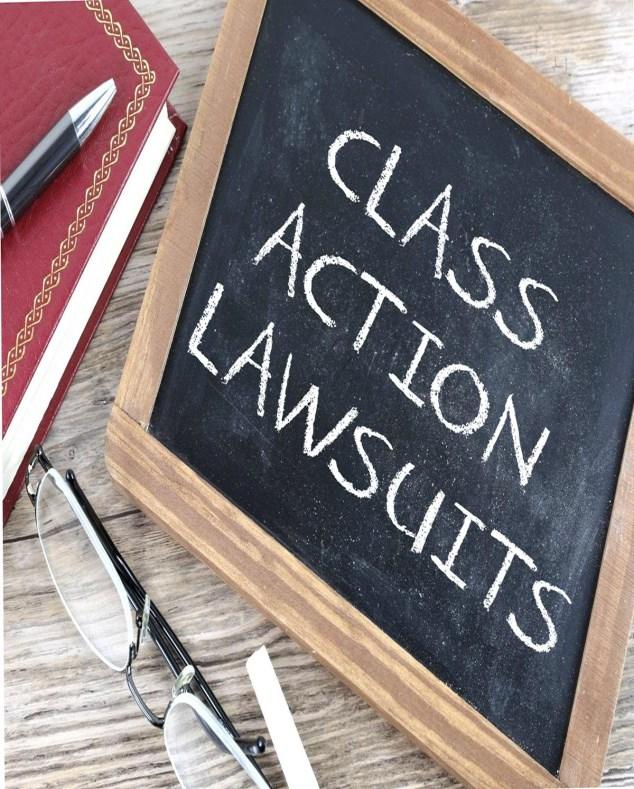
What Are the Benefits of Class Action Litigation?
When you pursue litigation during a class action lawsuit, it will not cost you nearly as much as if you attempted to file an individual claim. That is because all of the plaintiffs are splitting the costs equally. This helps to cut costs for all parties. Plaintiffs will likely also pay on a contingency fee basis, which means there are no fees unless you win the case.
After you spend thousands going up against a large company, your claim could end up only being worth a few hundred dollars. Class action lawsuits help victims avoid this risk.
Depending on the case’s judgment, the plaintiffs may receive awards for financial compensation. While class action lawsuits may include many plaintiffs, that does not stop each member from receiving damages. For instance, in the Camp Lejeune water contamination lawsuit, the victims can receive monthly compensation up to $3,000, depending on their disability rating and other factors. Veterans who experienced the most serious disabilities can also receive extra monthly compensation.
When looking into financial compensation, it is important to consider when to sue the business with your fellow plaintiffs. That is because there is a risk of the company or defendant going bankrupt. You may want to try to join a class action lawsuit sooner than later, as the first group of plaintiffs to file may be the only ones who receive compensation.
Is a Class Action Lawsuit Worth It?
Even in cases with minor damages, it may be worth your time, money, and resources to join a class action lawsuit. If you have minor injuries or other damages from a large company’s negligence, these issues can affect many other people, too. A class action lawsuit can allow you to pursue financial compensation for your damages.
Additionally, the cost of hiring an attorney for your lone damage against a large company might not make sense financially.
How Can I Get Compensation with Class Action Lawsuits?
Once you have started a litigation process with the lead plaintiff taking legal action with your group’s attorney, the road to potentially earning financial compensation is easier for you and your loved ones.
Through class action lawsuits, going to court with multiple plaintiffs fractionalizes the cost compared to filing on your own. The court will still hear your voice and issues, regardless of how small your damages are. You and your attorney can begin to consider other affected party members and build a class action lawsuit.
Continue next page
How Do Class Action Lawsuits Work?
A class action lawsuit combines many claims into one, making the entire process much smoother and quicker for all parties involved. There will only be one judge operating under one courtroom.
During a class action lawsuit, the group of harmed people will assign their lead plaintiff to file the lawsuit on behalf of all party members. This lead plaintiff can also work alongside their lawyer during litigation and can communicate updates back to the entire group.
The lead plaintiff, or the class representative, allows the other party members to have a passive role throughout the litigation. This is efficient for the group’s attorney, too, who then only has to communicate with the class representative throughout the litigation.
How Do You File a Class Action Lawsuit?
To start or join a class action lawsuit, you will need to have a consultation with a lawyer who specializes in class action law to review your claim. If we determine you have a valid case, we will prepare and file a complaint on your behalf. We will guide you through the settlement process and fight to get you fair and adequate compensation.
How Do you Start a Class Action Lawsuit?
To start a class action lawsuit, your personal injury lawyer will file a claim with the court. In your claim, your attorney will formally request that the court certifies the potential claimants in your case as being their own class. Once that happens, other injured parties will be free to join your claim.Read More class actions | Federal Trade Commission (ftc.gov)











